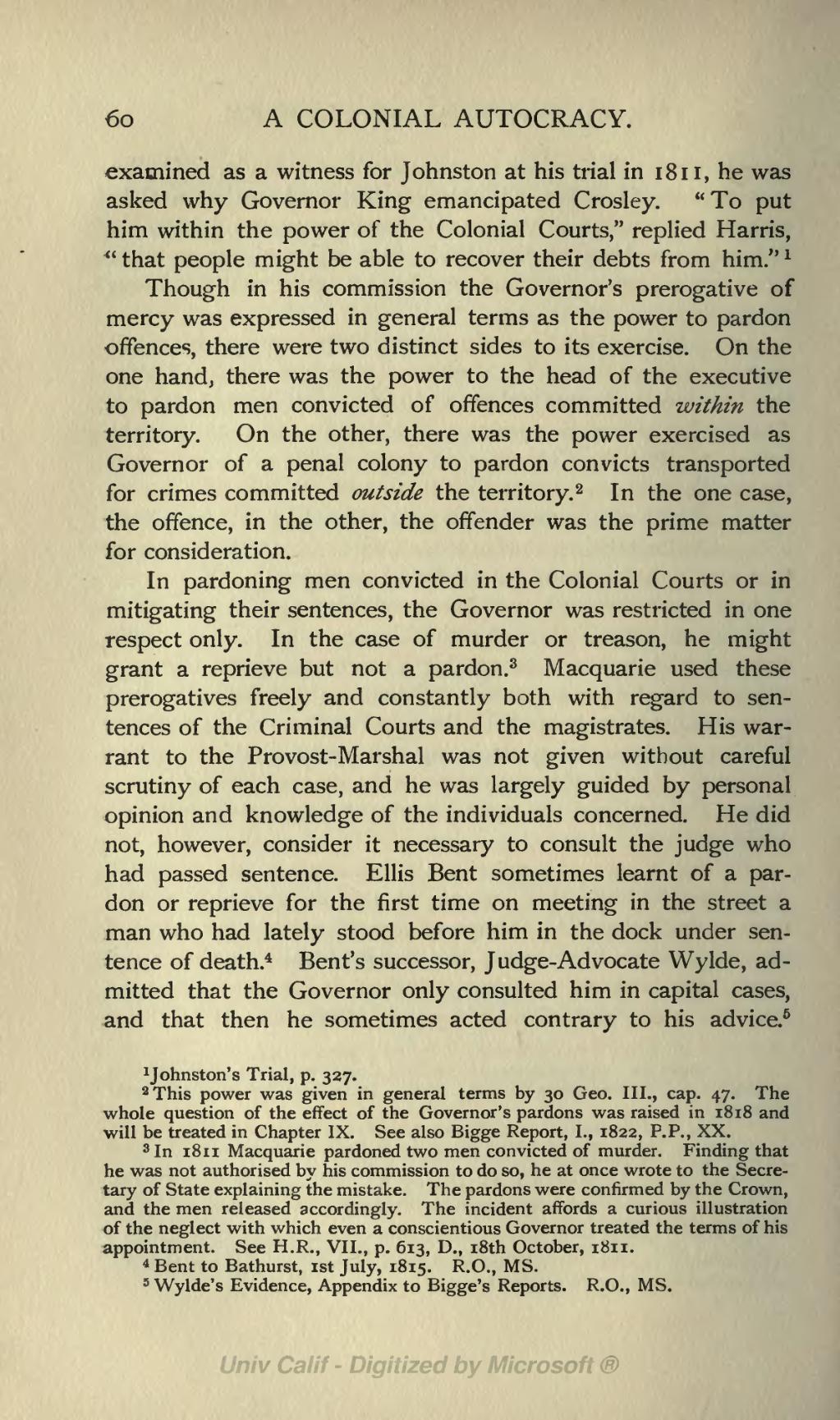examined as a witness for Johnston at his trial in 1811, he was asked why Governor King emancipated Crosley. "To put him within the power of the Colonial Courts," replied Harris, "that people might be able to recover their debts from him."[1]
Though in his commission the Governor's prerogative of mercy was expressed in general terms as the power to pardon offences, there were two distinct sides to its exercise. On the one hand, there was the power to the head of the executive to pardon men convicted of offences committed within the territory. On the other, there was the power exercised as Governor of a penal colony to pardon convicts transported for crimes committed outside the territory.[2] In the one case, the offence, in the other, the offender was the prime matter for consideration.
In pardoning men convicted in the Colonial Courts or in mitigating their sentences, the Governor was restricted in one respect only. In the case of murder or treason, he might grant a reprieve but not a pardon.[3] Macquarie used these prerogatives freely and constantly both with regard to sentences of the Criminal Courts and the magistrates. His warrant to the Provost-Marshal was not given without careful scrutiny of each case, and he was largely guided by personal opinion and knowledge of the individuals concerned. He did not, however, consider it necessary to consult the judge who had passed sentence. Ellis Bent sometimes learnt of a pardon or reprieve for the first time on meeting in the street a man who had lately stood before him in the dock under sentence of death.[4] Bent's successor. Judge-Advocate Wylde, admitted that the Governor only consulted him in capital cases, and that then he sometimes acted contrary to his advice.[5]
- ↑ Johnston's Trial, p. 327.
- ↑ This power was given in general terms by 30 Geo. III., cap. 47. The whole question of the effect of the Governor's pardons was raised in 1818 and will be treated in Chapter IX. See also Bigge Report, I., 1822, P.P., XX.
- ↑ In 1811 Macquarie pardoned two men convicted of murder. Finding that he was not authorised by his commission to do so, he at once wrote to the Secretary of State explaining the mistake. The pardons were confirmed by the Crown, and the men released accordingly. The incident affords a curious illustration of the neglect with which even a conscientious Governor treated the terms of his appointment. See H.R., VII., p. 613, D., 18th October, 1811.
- ↑ Bent to Bathurst, 1st July, 1815. R.O., MS.
- ↑ Wylde's Evidence, Appendix to Bigge's Reports. R.O., MS.
